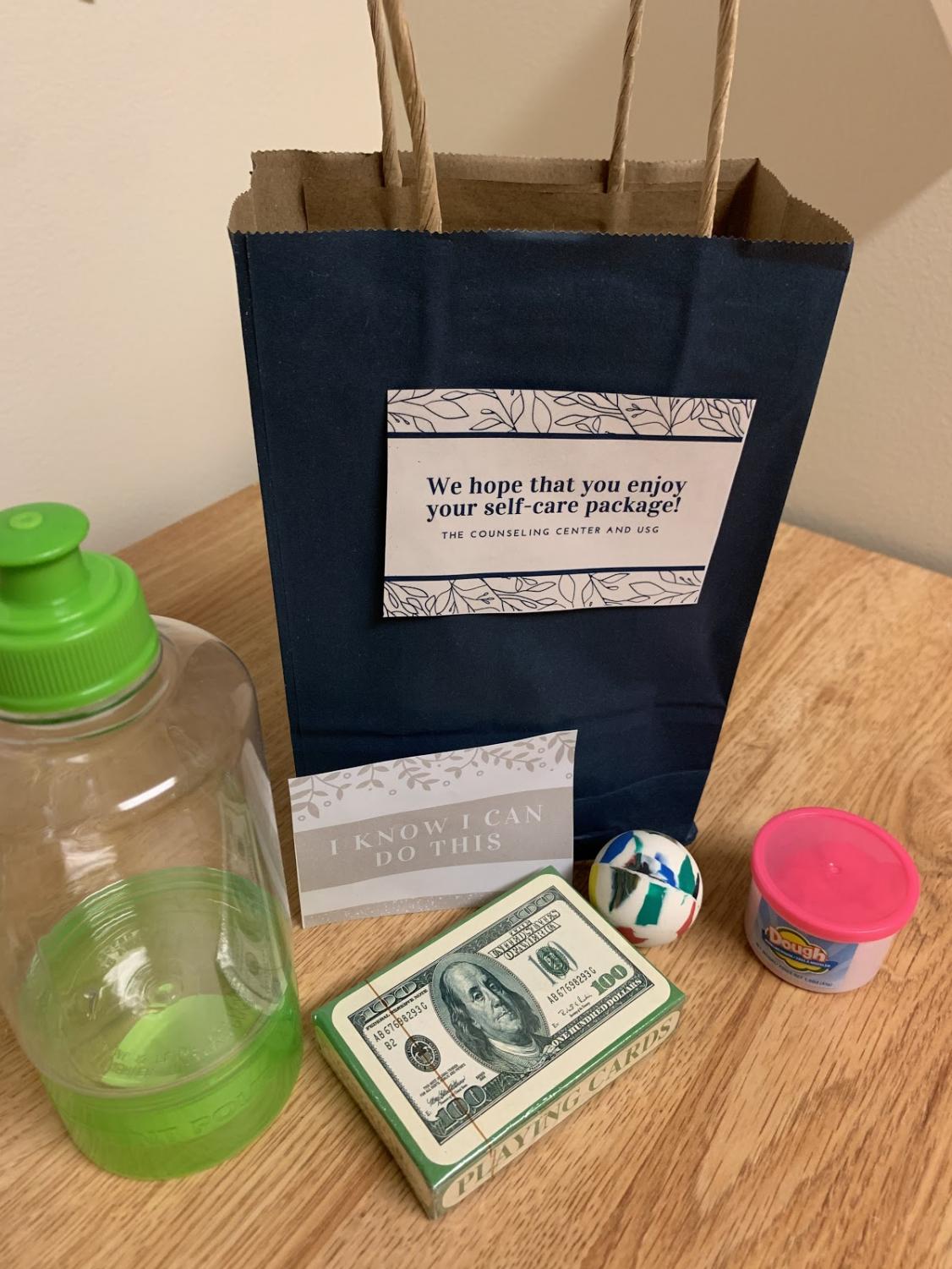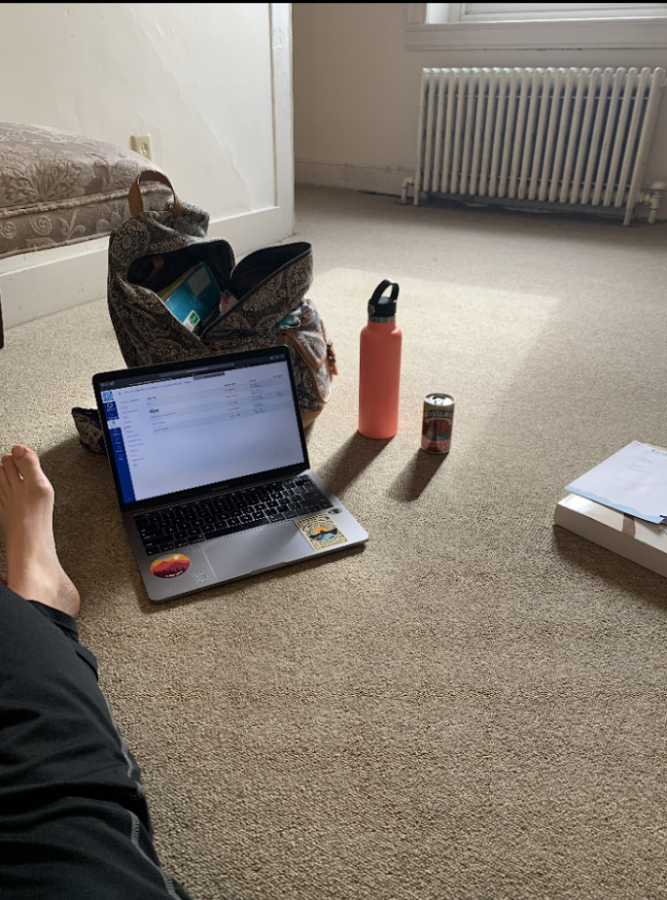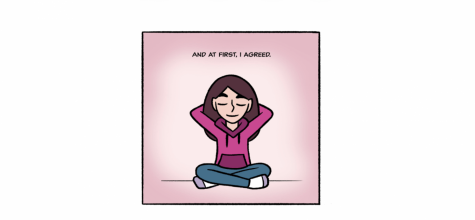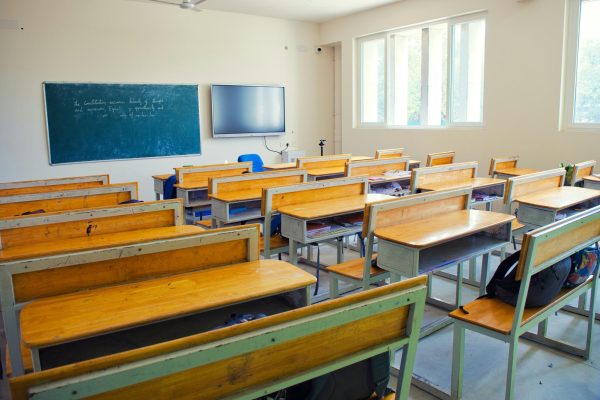College Students’ Experience Loneliness in Quarantine on Campus
It’s March 2021 — about a year ago, the coronavirus was just beginning to impact our lives. Now, we are still living with the “ongoing pandemic” as students on a college campus.
Moravian students are certainly troopers, at this point in the school year having made things work semi-remotely for one-and-a-half semesters. With classes half online and half in-person, residential housing open but subject to strict socialization standards, and dining halls and public spaces open but with limited capacity, students, staff and professors are working to keep each other safe.
But with the recent change in coronavirus surveillance testing, surges in cases have many alarmed.
In the fall semester, there was no such thing as surveillance testing. Students were tested only if they started showing symptoms, and quarantine and isolation rates were low.
At the beginning of the spring semester, the school began surveillance testing, with 25% of athletes and 5% of the student body tested randomly each week.
Students who have been exposed to someone with COVID-19 quarantine for a minimum of 10 days in their living space. Students who test positive are moved to campus isolation housing for 14 days.
Moravian’s COVID Dashboard shows up-to-date data on how many students are positive, in quarantine and in isolation.
This change in testing has had many different effects on student life.
Some students, according to President Grigsby’s March 5th Update, feel a “false sense of security” from the testing, and have relaxed a little too much, resulting in a spike in cases. Others have experienced a spike in COVID anxiety, and have hermitted themselves in their dorm rooms more than ever.
However, quarantine happens frequently now, and when it does, students have a lot to say.
Caroline Flora, a senior majoring in English, said that her experience quarantining in her dorm in The HILL was not too bad.
In the first few weeks of the spring semester, Flora was exposed by an asymptomatic friend who had gotten randomly selected for testing and was found to be positive for COVID.
Flora’s opinion on the topic of the new testing policy is that she is glad it’s there–she would have had no idea about her exposure to COVID without the new surveillance testing. Flora is also naturally an introvert, so having some time to herself was actually an upside to quarantine.
However, there were some downsides as well.
“I live on South Campus, and getting to the COVID testing site with no shuttle service during a snowstorm took quite a bit of effort,” she commented. Other students had to use Flora’s car to get to testing, and Flora says all of them would have had a much harder time reaching the site if she didn’t have a car. And even though Flora is an introvert, she did feel lonely as the days went on.
Natalie Stabilito, a junior majoring in nursing, had a slightly different experience.
She tested positive for COVID in the very beginning of the semester, which surprised her because she had no symptoms. Stabilito was relocated to isolation housing on campus, but then moved home for the remainder of her quarantine.

The worst part of Stabilito’s experience was with the isolation housing. “It was lonely, unfamiliar and not cleaned before I got there,” she said. “It was dirty and cold. Plus, I found some safety hazards like holes in the floor and outlets coming out of the wall.” Not having a desk to complete schoolwork made remote learning difficult and uncomfortable.
Stabilito also said she felt very alone during her quarantine, as she was missing out on clinical experiences, team practices and even shared walls with her housemates. However, she was happy to stop the spread to her contacts by isolating.
Stabilito also said her professors and instructors were responsive to students in quarantine and flexible with assignments.
One thing that both Flora and Stabilito liked was the Dining Service food drop-offs and the wellness bags from the Counseling Center. Stabilito said that these efforts were “greatly appreciated and very helpful,” and Flora said she felt “like people were looking out for her.”
Phi Eta Sigma, an academic honors society on campus, took notice that students in quarantine were lonely and organized a 4-day cardmaking event for them. Alexis Kersten, assistant director of residence life, took these cards and distributed them with the Counseling Center’s wellness bags.
The Health Center is also working to ensure that the testing policies are upheld and that students who are exposed or who test positive are promptly informed of next steps.













Sara McClelland • Mar 20, 2021 at 3:03 pm
This was a great piece helping to share what our students are experiencing. I’m so glad that Phi Eta Sigma had a card making event! Is there a way for our community to continue sending cards to students in quarantine/isolation? If so, how should we address those cards or where should we send them?
Thank you again for writing this series!
Grace Gilbert • Mar 25, 2021 at 1:22 pm
Dr. McClelland, thank you so much for commenting and for your interest in the card making! Student Life in the basement of the HUB was accepting cards and adding them to the quarantine wellness bags, and I am sure they would be delighted to receive more cards for quarantined students. Phi Eta Sigma made general messages of encouragement that can apply to any student. We recommended songs and Netflix shows, shared quotes, and most of all kind words. We didn’t address these cards to a specific person, but “Dear Student” or “Fellow Hound” might work!